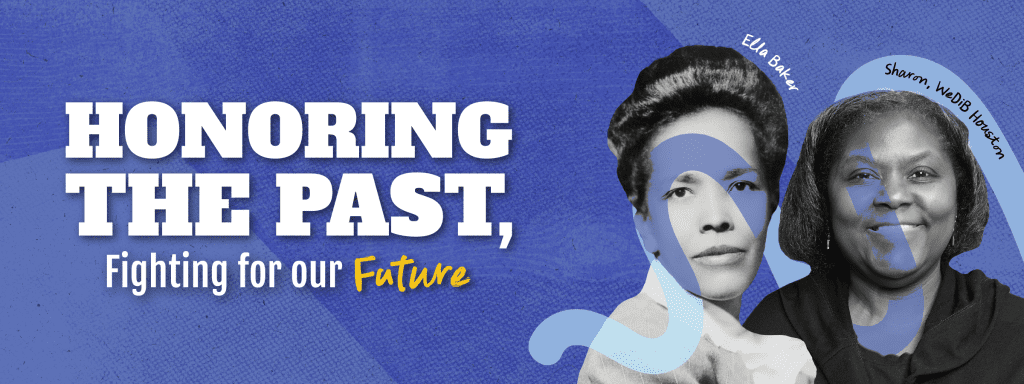
Sharon:
Ella Baker wasn’t a domestic worker, yet her dedication to labor rights and the Black community has made her an inspiring figure for many domestic workers. Sharon, a We Dream in Black member, says, “Ella Baker inspires me because she cultivated a strong foundation and as a leader she knew it was important just as important to follow as it was to lead and to get involved in order to make things happen in the lives of other people.”
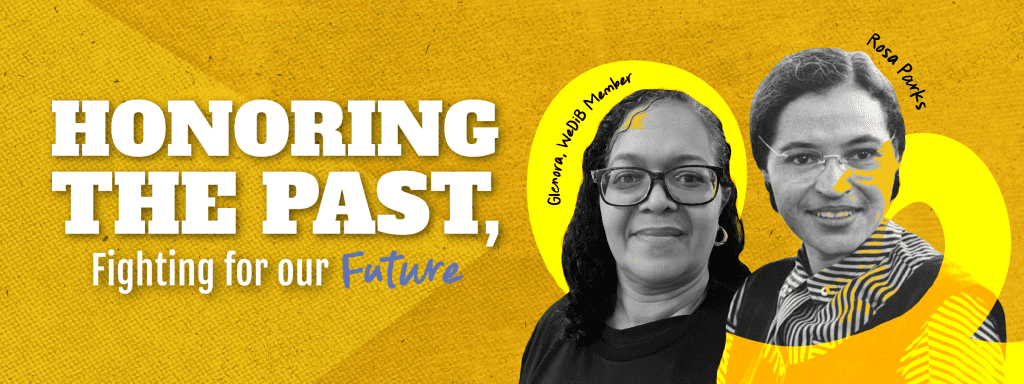
Glenora:
Like Rosa Parks, who was once a domestic worker before becoming a symbol of change, Glenora is standing up for care workers’ rights. With over 30 years experience in healthcare, she knows that patients deserve quality care and that caregivers must be valued. She is paving the way for her daughter and other women, inspiring them to “keep care in care.”
To celebrate Women’s History Month Glenora remembers Black women who’ve changed the world. “Rosa Parks has inspired me because as a woman in the Civil Rights era she was bold and took action in the historic Montgomery bus boycott… she created change for something much bigger than herself.”
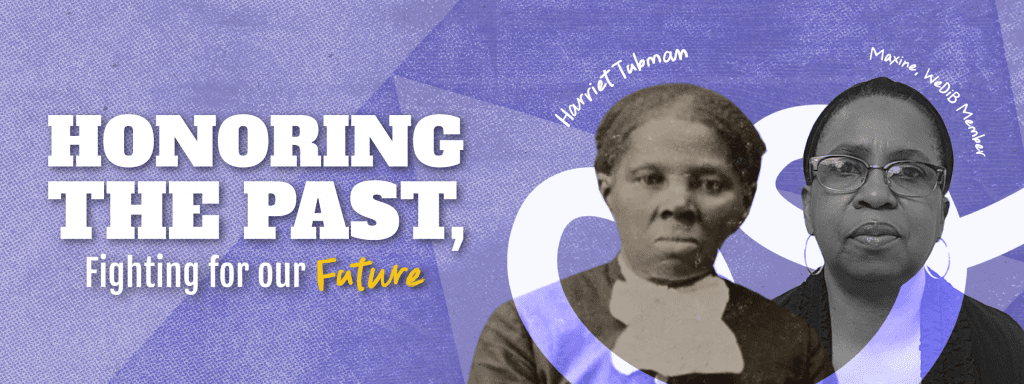
Maxine:
Harriet Tubman, enslaved from birth, was a house servant before escaping to freedom, eventually becoming the most famous conductor of the Underground Railroad. She led innumerable people to liberation and even served as a Union spy during the Civil War. Maxine, a We Dream in Black member , reflects, “I am inspired by Harriet Tubman because she was blessed with a lot of love in her heart and that love propelled her accomplishments. She was compassionate, brave and courageous in her efforts to free other slaves. Her great achievements earned her the amazing nickname Moses of the people. Harriet Tubman was a woman of faith, love and care and push forward for her people.” Tubman’s enduring influence serves as a beacon of hope, reminding us to carry forward her spirit of bravery and dedication to justice.
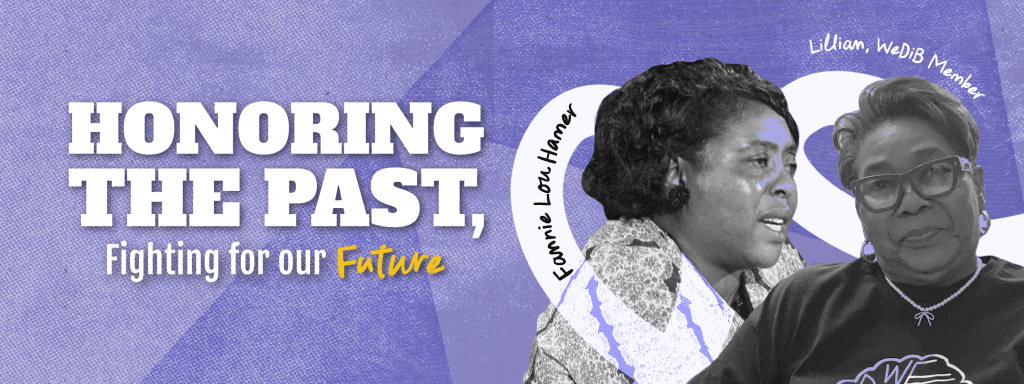
Lillian, is a We Dream in Black member who lives by some key principles: faith, passion, strength, and leadership.
These values echo those of Fannie Lou Hamer, whose faith, passion, and strength fueled her fight for civil rights. Like Lillian, Fannie Lou was a leader who broke barriers, especially for Black women in the South. Lillian chose to honor Fannie Lou Hamer for her brand of activism and doing things like sharing a powerful testimony at the 1964 Democratic National Convention. She reflects on Hamer by saying, “I relate to Hamer because she was an activist and a great organizer. Her fight was for women’s rights, and her fight was on purpose!” Lillian believes in the importance of working with a good organization, Fannie Lou understood the power of collective action and the impact of being part of a strong, committed group. Let us all be a part of something and support one another!
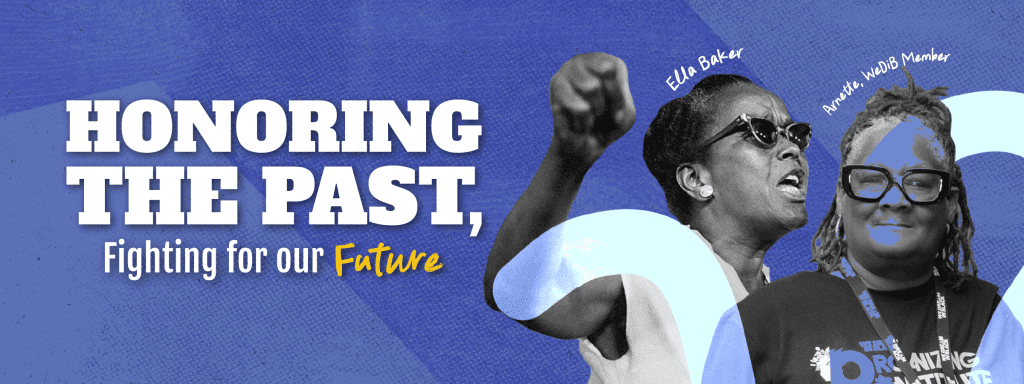
Arnetta, a We Dream in Black member shares, “I am inspired by Ella Baker because her grandmother was formerly enslaved and her commitment to organizing and leadership in working-class Black communities.” Like Ella, Arnetta is organizing in her own community, she adds, “I am charting the path forward by giving back in my community and sharing stories with the youth to inspire and empower them!” Baker understood the power of many voices coming together
As Patricia Parker explains in her book Ella Baker’s Catalytic Leadership, Baker believed in “bridge leadership,” a grassroots approach that focuses on building power from the bottom up, rather than from the top down. Let us remember what Ella Baker taught us and what Arnetta and others like her still do, because no matter who we are – we have collective power to make change!
Ella Baker wasn’t a domestic worker herself, yet her work was shaped by and for working-class Black communities. She dedicated much of her life to organizing and advocating for domestic workers and other laborers through the NAACP, SCLC, and SNCC. She’s considered by many to be a mother of the Civil Rights Movement.
![The Roots of Domestic Work: Black Women's History]()
![The Roots of Domestic Work: Black Women's History]()




